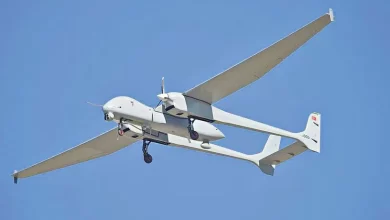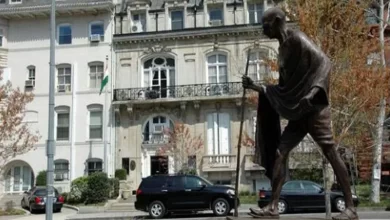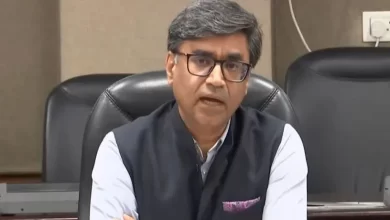Travellers faced long queues at major UK airports after electronic passport gates failed

Passengers arriving at major airports in the UK at the start of the bank holiday weekend faced long delays after problems with electronic passport gates.
Travellers expressed their anger on social media over queues of several hours at a number of airports including Heathrow and Gatwick as arrivals had their passports checked by hand instead of the automated machines.
On Saturday afternoon a Home Office spokesperson said the disruption began Friday, resulting from an IT issue which had since been resolved.
“Following a technical border system fault which affected e-gate arrivals into the UK, we can confirm all e-gates are now operating as normal,” the spokesperson said. “We thank those travellers who were impacted for their patience and staff for their work in resolving the issue.”
Millions are expected to travel this weekend as the British half-term begins.
The delays at some of the UK’s largest airports affected thousands of passengers, with reports of some people overheating and fainting in the hot weather, and water being distributed to those queueing for long periods.
One passenger arriving from Frankfurt said he queued at Heathrow only to have his passport rejected by an electronic gate. “In total, queued for almost an hour to enter my own country on a British passport,” David Steward wrote on Twitter.
Another traveller posted photos of a crowded line at Gatwick’s passport control at 2am on Saturday. “Unbelievable. Welcome to modern Britain. And of course, the air con is shut down so it’s stiflingly hot,” wrote Chris O’Hara.
A passenger arriving at Heathrow posted on Twitter: “Just landed to scenes of utter chaos. 2 hour queues just to get to the real queue. Gates broken.”
Another person arriving at Heathrow described it as “the mother of queues”.
Across UK airports, electronic passport gates replace border officers, allowing travellers to scan their passports and, with the use of facial recognition technology, enable quicker entry, easing airport queues for British citizens and those from the EU.
Travellers from Australia, Canada, Iceland, Japan, Liechtenstein, New Zealand, Norway, Singapore, South Korea, Switzerland and the US, as well as those with a biometric symbol on their passport, can also enter through e-gates.
A Gatwick spokesperson said the problem started on Friday evening but that queues had eased by Saturday morning. He said: “Some passengers may experience delays at immigration due to a nationwide issue with UK Border Force e-gates.
“Our staff are working with UK Border Force – who operate passport control including the e-gates – to provide assistance to passengers where necessary.”
In a tweet on Saturday morning, a spokesperson for Heathrow said: “We are aware of a nationwide issue impacting the e-gates, which are operated by Border Force. This issue is impacting a number of ports of entry and is not Heathrow specific.
“Our teams are working closely with Border Force to help resolve the problem as quickly as possible and we have additional colleagues on hand to manage queues and provide passenger welfare. We apologise for any impact this is having to passenger journeys.”
Separate IT issues affected 20,000 British Airways passengers on Friday, causing more than 175 flights to be cancelled. It went on to affect services on Saturday morning.
Disruption also affected travel on ferries between Dover and Calais, as a problem with IT systems in French passport control was delaying arrivals into France.
Passengers were being told to allow two hours for border controls and to check in at the UK’s main passenger port.
The Port of Dover said on Saturday night that queues had cleared, posting on Twitter: “Thank you for your patience as we catch up from earlier IT issues at border control, which have been resolved. Traffic now processing well through border. Average waiting times for cars and coaches now 90 mins.”
A Home Office spokesperson said earlier on Saturday that the Border Force had put in place “robust plans” to deploy officers to minimise disruption and wait times.







